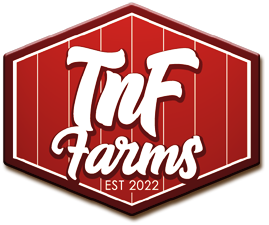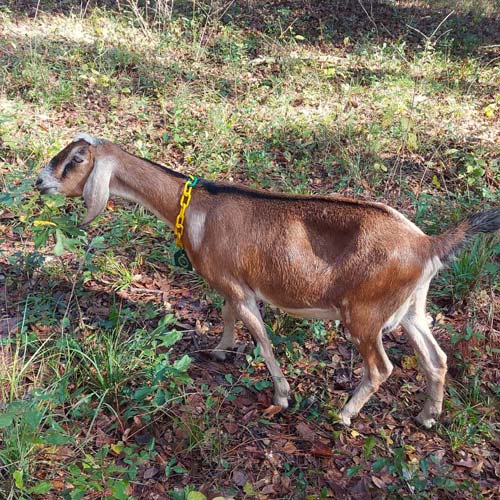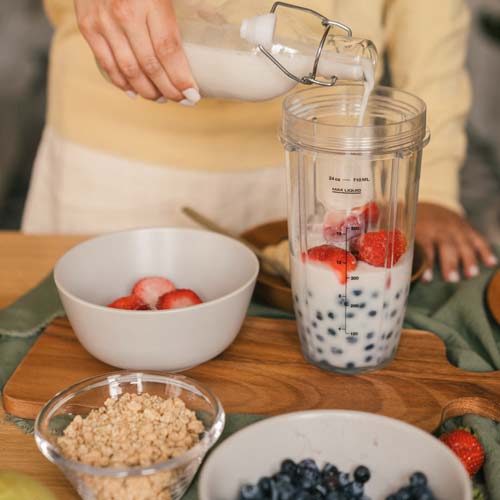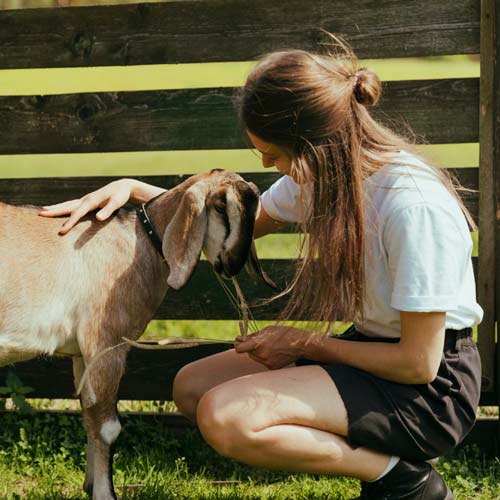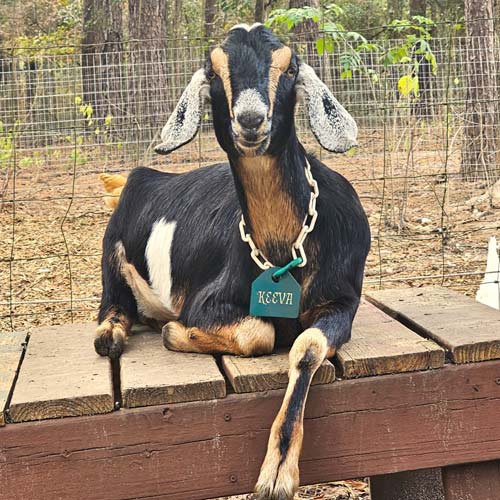This is the revised and more detailed post from our 2023 Florida goat farming guide.
A TnF Farms guide: The 2024 Everything you wanted to know about raising dairy goats in Florida.
by Faith | 15-20 minute read
Thinking about Nubian or Mini Nubian Goats for your homestead?
When I decided to add goats to our farm, we started with Nigerian Dwarfs. I figured out a lot of things with goats the hard way. There were hours of internet research, asking questions and getting some mentoring from experienced goat farmers. The goal of this guide is to shortcut your experience if you’re new or thinking about getting goats of your own. Since the last goat guide, we’ve now added Nubian and Mini Nubians to our herd.
Nubian goats are believed to be one of the oldest domesticated dairy breeds, and their history can be traced back thousands of years. Nubian goats trace their roots to North Africa, with historical significance in Nubia. The Nubia region is now part of Sudan and Egypt. Nubians are known for their distinctive characteristics and valuable contributions to the dairy and meat industries. The breed we know today as Nubian goats was from British does (female goats) being crossed with bucks (male goats) from Africa.
This is an extensive post, I will be covering:
Nubian Goat Origins
Nubian goats are considered descendants of the African and Middle Eastern wild goats. They were domesticated by ancient people in the Nubian region, where the breed likely developed its distinctive characteristics over centuries. The Nubian region was historically a crossroads for trade and cultural exchange, and it’s believed that Nubian goats were spread to other parts of Africa, the Middle East, and eventually to Europe through trade and migration routes.
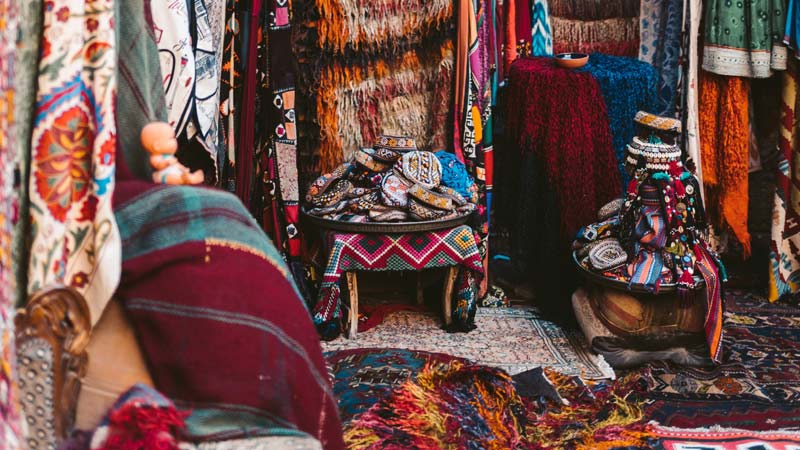
Photo via Pexels
Nubian goats were introduced to Europe in the early 20th century. They gained popularity for their milk production qualities, and the breed was imported to England and later to the United States. After their introduction to Western countries, Nubian goats underwent selective breeding to enhance specific traits. Breeders focused on qualities such as high milk production, distinctive physical features like long, pendulous ears, and the characteristic Roman nose. Today, Nubian goats are found in various parts of the world, including North America, Europe, and other regions. They are an excellent choice for their adaptability to different climates and their high-quality dairy production.
The Mini Nubian goat is a relatively recent breed that was developed by intentionally crossbreeding standard-sized Nubian does with Nigerian Dwarf bucks. The goal was to create a smaller-sized super dairy goat. Mini Nubians retain the distinctive physical characteristics and milk production qualities of the Nubian breed with the high butterfat percentage of the Nigerian Dwarf. While the exact origins can vary depending on individual breeding programs, the concept of miniature or small-sized Nubian goats is popular, especially for homesteaders and hobby farmers.
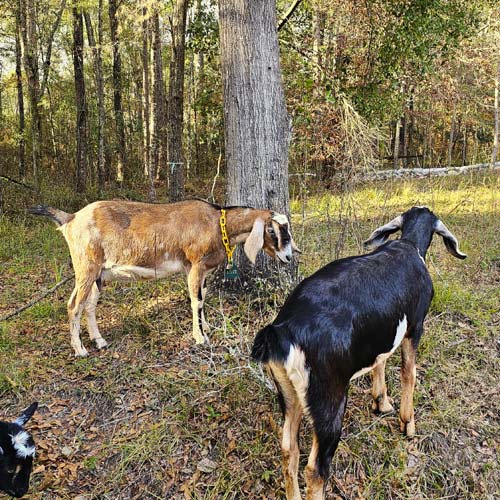
Size comparison of does. Mini Nubian doe (left) Nubian doeling (right)
Nubian versus Mini Nubian Goats
Nubian and Mini Nubian goats share common ancestry and characteristics, Mini Nubians are selectively bred for a smaller size while retaining the essential qualities of their larger counterparts. Both breeds are excellent choices for dairy production. Breeders choose between them based on their specific goals and available space. Nubian goats and Mini Nubian goats are related breeds, but they differ in terms of size and conformation
The most obvious difference is size. Nubian goats are generally larger, while Mini Nubian goats are selectively bred to be smaller in stature. Mini Nubians are typically bred to be about two-thirds the size of standard Nubian goats. Nubian goats have a standard conformation that includes a Roman nose, long, pendulous ears, and a sturdy, well-muscled body. Mini Nubian goats also possess these features but in a more compact and smaller form. Mini Nubian goats can sometimes exhibit dwarf characteristics. Which can include shorter legs. This is a result of selective breeding for smaller size. It’s important to note that dwarfism can potentially come with health issues, so responsible breeding practices are crucial.
Nubian goats are primarily bred for milk production. They are known for their high-quality milk with a relatively high butterfat content. All goats can be used for meat production, but their dairy qualities outweigh using them for meat as far as we are concerned. Mini Nubians are also bred for milk production, but their smaller size makes them more suitable for homesteaders or backyard farming.
Both Nubian and Mini Nubian goats are valued for their milk production. However, due to their smaller size, Mini Nubians may produce less milk compared to standard Nubians. Breeders of Mini Nubians typically prioritize maintaining good milk production while achieving a smaller overall body size.
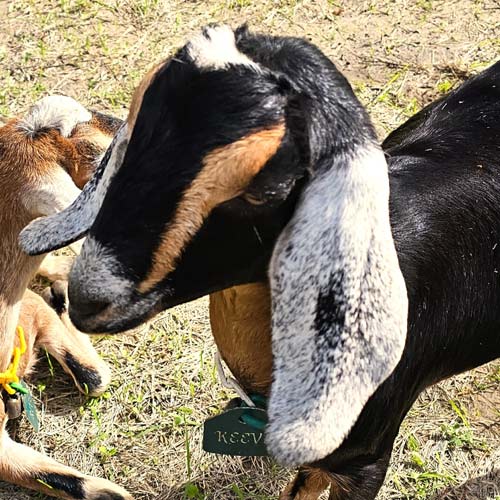
Physical Characteristics of Nubian and Mini Nubian Goats
These goats display a variety of colors, including solid black, red, or tan. They often have distinct white markings on their bodies, such as facial stripes, stockings on legs, and a white splash on the side.
One of the most distinctive features of these goats is their long, pendulous ears. These ears are wide and can extend down the sides of their face, sometimes nearly reaching their jawline. The ears contribute significantly to the breed’s unique and recognizable appearance. These goats are characterized by a Roman nose, meaning they have a straight or slightly convex profile. This facial feature, combined with their long ears, gives them a regal and elegant look.
Nubian goats are medium to large-sized animals. Adult does typically weigh between 135 to 200 pounds, while bucks can weigh between 175 to 250 pounds. The Mini Nubian adults range from around 100 to 175 pounds. They have a well-balanced and sturdy build. The body of these goats is relatively compact with a deep and broad chest. Their bodies are well-muscled, contributing to their overall strength and agility. They have straight, strong legs that support their body weight. Their hooves are well-shaped and require regular trimming to maintain good hoof health.
Coats on a Nubian or Mini Nubian goat is short, fine, and glossy. The density of the coat protects against the elements, but they are not heavily coated compared to some other goat breeds. Both male and female Nubian goats can have horns. The horns are usually medium to large, curving backward and outward. It’s pretty common to have goats disbudded (horn buds removed) for safety and management purposes. The tail of these goats is of moderate length and is often carried high. It is not docked or shortened in its natural state.
Goat Milk Production
Female Nubian and Mini Nubian goats (does) have well-developed udders, which is essential for their milk production. The udder is generally symmetrical and attached high, contributing to their reputation as excellent dairy goats.
Nubian goats are highly regarded for their exceptional milk production, and their milk is known for its rich flavor and high butterfat content. Nubian goats are considered prolific milk producers. On average, a well taken care of Nubian or Mini Nubian doe can yield up to a gallon of milk per day. Individual production levels will vary based on lineage, age, and kidding cycles. The butterfat percentage in Nubian and Mini Nubian goat milk is typically higher than that of many other dairy goat breeds. With only Nigerian Dwarfs holding the title for highest butterfat percentage. This makes Nubian goat milk especially desirable for the production of cheese, butter, and other dairy products.
Nubian goat milk is known for its relatively high protein content, contributing to the nutritional value of the milk. The protein content is important for the development of dairy products and is one of the factors that make Nubian and Mini Nubian goat milk excellent for cheese making.
The lactation period for Nubian and Mini Nubian goats
Typically around 10 months, with peak production occurring during the first few months after kidding. Proper nutrition, good husbandry, and regular milking will contribute to sustained milk production throughout the entire lactation period. Nubian and Mini Nubian goats can be milked twice a day. The exact milking schedule may vary depending on the specific management practices of your farm or dairy. We’ve found milking once a day works best for us and encourage you to do what works best for your schedule. It really comes down to regular and consistent milking for maintaining milk production levels and the overall health of the goat.
Proper udder health is crucial for sustained milk production. Regular monitoring, cleanliness, and preventive measures against udder infections contribute to the well-being of the doe and the quality of the milk. Nubian and Mini Nubian goats are known for their adaptability to different diets, which can influence milk production. Providing a balanced and nutritionally sound diet including free-ranging, peanut hay, and high-quality feed is essential for optimizing milk production.
Feeding Nubian and Mini Nubian goats
Feeding goats is both a science and an art, as goats have unique dietary needs. Goats are natural foragers, and their diet should primarily consist of high-quality forage. Pasture, browse, and coastal hay are excellent sources of fiber, which is essential for proper digestion. Most animals have a pretty natural instinct to avoid poisonous plants. Being Florida goat farmers, we have our goats eating forest scrub. We make sure to steer our goats clear from Sago Palms, Oleander, Bracken Fern and Pokeweed. Google for toxic plants in your region. Usually there are pictures and descriptions. If you find plants like these in your livestock grazing area, cut these plants down or dig them up. Goats will taste every kind of vegetation they can find. Some of these plants will just make them sick, others cause death.
While foraging is the foundation of a goat’s diet, it’s essential to complement it with a good quality feed. Alfalfa pellets, minerals and feeds formulated for goats provide necessary vitamins and minerals. All of these can be picked up at any livestock feed store. We have learned the hard way, you can overfeed. This leads to chubby goats, which like humans, being overweight can then create other health issues.
If you have never raised goats before, you need to be aware, goats make waste (excrete, urinate) everywhere. They go on their bedding, food, etc. Which is probably why they usually refuse to eat hay or feed off the ground. Each goat at TnF Farms has their own hanging bucket with a measured amount of feed. Also, hay that falls out of your hay manger is probably lost unless you have a tray to catch loose hay.
Image via Pexels
Nubian and Mini Nubian Goat milk in Dairy Products
The high butterfat content and overall quality of goat milk allows us to make a variety of dairy products at TnF Farms. We have cheese, yogurt, fudge, and ice cream available for sale. Artisanal cheese makers often favor Nubian and Mini Nubian goat milk for its unique flavor profile. These goats make valuable contributions to the dairy industry, producing milk that is not only abundant but also of high quality. Their milk’s richness and unique characteristics make these goats a popular choice among dairy farmers. Nubian goat milk is highly valued in the dairy industry due to its unique qualities, including high butterfat content and rich flavor. This milk is utilized in various dairy products, contributing to the production of artisanal and specialty items.
The use of goat milk in dairy products is often associated with niche and artisanal markets. Distinct characteristics of Nubian and Mini Nubian goat milk contribute to the production of specialty items that cater to consumers seeking unique flavors and textures in their dairy products.
It’s important to note that people often worry that goat milk will taste “goaty” or taste like a goat at the zoo smells. Goat milk should be very difficult to discern from whole cow milk for smell or a quick taste. If your goat milk is “goaty”, this is indicative that the milk has not been handled properly at some point or is possibly out of date.
Raw goat milk is not to be sold for human consumption in the state of Florida. Click here to read our post covering Florida raw goat milk laws.
Milk
Goat milk can also be consumed as a beverage on its own. Some consumers prefer goat milk for its distinctive taste and potential health benefits. Especially for those with lactose sensitivities.
Cheese
Nubian goat milk is excellent for cheese production. The high butterfat content and protein composition contribute to the creamy texture and rich flavor of the cheese. Various types of cheese, including soft cheeses like chèvre and feta, as well as semi-hard and hard cheeses, can be crafted from Nubian goat milk.
Butter
The high butterfat content in Nubian and Mini Nubian goat milk makes it suitable for butter production. While goat milk butter is not as common as cow’s milk butter, it has a distinct flavor profile that some consumers find appealing. Artisanal butter makers may choose Nubian goat milk for its unique characteristics.
Yogurt
Goat milk can be used to produce yogurt with a smooth and creamy texture. This yogurt may have a slightly tangy flavor, and it is often well-received by individuals who are sensitive to cow’s milk or who prefer the taste of goat milk products.
Ice Cream and Gelato
The rich and creamy nature of Nubian goat milk makes it an excellent choice for producing gourmet ice cream and gelato. This milk’s unique flavor adds depth to frozen desserts, and artisanal producers may use it to create distinctive and high-quality products.
Soap and Cosmetics
In addition to food products, Nubian goat milk is also utilized in the production of soap and cosmetics. Goat milk soap is known for its moisturizing properties, and its use in cosmetic formulations is appreciated for its skin-nourishing qualities.
Candles
Goat milk candles are candles that are made using goat milk as one of the key ingredients in the candle-making process. These candles offer a unique and luxurious alternative to traditional wax candles, and they are appreciated for their creamy texture, rich scent, and potential benefits for the skin.
Caramel and Confections
Nubian goat milk’s richness is well-suited for making caramel, toffees, and other confections. The unique flavor profile of the milk can enhance the taste of these sweet treats.
Kefir
Nubian goat milk can be fermented to produce kefir, a cultured dairy product with a tangy taste. Kefir made from goat milk is a probiotic-rich beverage that is considered a healthy alternative to traditional milk-based kefir.
Image via Pexels
Nubian and Mini Nubian Goat Temperament
Nubian and Mini Nubian goats typically have a friendly and affectionate temperament, making them popular not only in family farm settings but also as pets. Goats are social animals that need interaction, especially with other goats and their humans. Note: goats are herd animals. You cannot have only one. Individual temperament can vary, and factors such as genetics and socialization. The care and attention you provide plays a significant role in shaping any goat’s behavior.
Goats develop strong bonds with their human caretakers and become affectionate companions. The TnF Farms goats know their names and even bleat back when called. All goats are known for their playful behavior, especially when they are young. If you’re just getting started with goats, look into old playground equipment. We picked up several old backyard playground sets for our goat kids to play around on. If you feel old playground equipment in your pasture is unsightly, you can also build platforms to jump on that also double as a shelter. Goats love jumping, climbing, and other playful activities. This playful nature makes them entertaining to observe and interact with.
Goats are naturally curious animals
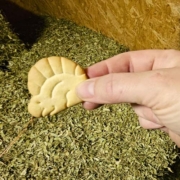 They explore their surroundings and show interest in new objects or changes in their environment. It’s hard to get construction or maintenance done if our goats are around. They will be looking through everything we carry in to see if someone has treats or food. If you drive equipment into the production area, expect them to climb on it. This inquisitive nature can be annoying but makes them easy to train and work with. Nubian and Mini Nubian goats are wonderfully intelligent animals. Routines are easy to establish and they respond quickly to positive reinforcement. Like all animals and most humans, they are food-motivated. We’ve found animal crackers are the primary motivator.
They explore their surroundings and show interest in new objects or changes in their environment. It’s hard to get construction or maintenance done if our goats are around. They will be looking through everything we carry in to see if someone has treats or food. If you drive equipment into the production area, expect them to climb on it. This inquisitive nature can be annoying but makes them easy to train and work with. Nubian and Mini Nubian goats are wonderfully intelligent animals. Routines are easy to establish and they respond quickly to positive reinforcement. Like all animals and most humans, they are food-motivated. We’ve found animal crackers are the primary motivator.
This intelligence along with treats makes them trainable for milking and showing. Our goats seek attention and affection whenever they spot us. They enjoy being walked, petted, scratched, or simply spending time with us sitting nearby. This easy going nature easily contributes to their popularity as pets.
Nubian and Mini Nubian goats are known for their distinctive vocalizations. They “talk” to us with a range of bleats, which can vary in pitch and intensity. Individual personalities can vary, Nubian and Mini Nubian goats are generally known for their docile and almost sweet-hearted nature. These breeds adapt well to handling and are often used in educational settings or petting zoos where interaction with the public is common.
Some does may exhibit protective instincts, especially when they have kids. Some flee, others become defensive, showing a protective attitude towards their offspring. Our does will charge or “stomp” at our large farm dog. We also cannot have our barn cats or small dogs near as some of our does will try to stomp on them.
Adaptability of Nubian and Mini Nubian Goats
These goats are a great choice in various climates and environments. This adaptability contributes to their widespread popularity in different regions. Like us, our goats love being in the warm and humid conditions of Florida too. They thrive best in temperate or warm environments. They demonstrate versatility but there are potential challenges in colder conditions.
Nubian and Mini Nubian goats generally have good heat tolerance, which is beneficial in Florida’s warm climate. Their short coats and large, pendulous ears aid in dissipating heat. However, it’s crucial to provide shade, access to air movement, and fresh water to get relief from extremely high temperatures. While goats are adaptable, some individuals may be more sensitive to direct sunlight. Light-colored or lightly pigmented goats can get a sunburn. Shelters and shaded areas in the pasture are important to protect them from prolonged exposure to the sun. Adequate water supply is paramount, especially in Florida’s warm climate. Goats need access to clean and fresh water at all times to stay hydrated and regulate their body temperature.
Ventilation is essential in hot and humid climates. Air movement reduces the chance of heat stress. Well-ventilated areas also reduce the risk of respiratory issues. Goats can be prone to respiratory issues in stale, humid environments. Our main goat shelter has fans and shutters for those hot summer days.
Florida offers a variety of forage options that Nubian and Mini Nubian goats thrive on. If you can, get them grazing on what’s growing naturally on your land. Pasture rotation is an endless and nutritious food supply that makes naturally healthy goats and excellent milk. We supplement our goats’ diet with custom-blended feed and minerals to make sure they are the best they can be.
Nubian and Mini Nubian Goat Health Considerations
Florida’s climate can contribute to the prevalence of certain diseases, such as parasites and hoof-related issues in goats. This climate can be conducive to the proliferation of internal and external parasites. Much like all humans are always carrying a little Staph (staphylococcus bacteria), all goats have an amount of worms present in their system. Keeping the worm population to a minimum is the key. Deworming is an easy process and essential for maintaining the health of goats. A lot of these problems can be quickly minified by observing your goats for changes in their feces, weight or energy level. Then taking action to remedy the problem.
Being members of Facebook goat groups and simply asking the group about symptoms will often provide a flood of answers. Great goat groups are out there and if you have loving your goats in common, most people want to help. We have also found searching the internet for symptoms to be very beneficial. If caught soon enough, symptoms can be eliminated with a diet or environment modification. Sometimes it simply takes a medication that can be bought from a livestock supply store. Or worst-case scenario, the goat needs to see a vet.
All livestock needs to be able to get away from their waste or mud. Simply keeping the goat area clean and dry will pay dividends compared to medication and veterinary bills. You also don’t want your does on medication when you’re milking as it will be present in the milk. Medication you may not want the doe’s kids or you consuming.
Nubian and Mini Nubian Goat Breeding
A lot of people have visited TnF Farms. Everyone has different levels of knowledge of biology and livestock. If you are completely new to goats and milking, I am going to state some things that may or may not be obvious. You will need to own or borrow a buck to impregnate your doe(s). Once the doe kids (gives birth), you will then be able to milk. If you choose to have bucks, they cannot be kept with your herd. Bucks will have every doe in your herd pregnant almost instantly, including the does that are too young to handle kidding. Bucks must be kept in pasture or pen away from the does except during breeding.
Goats are known for their year-round breeding capabilities. However, in North Florida, where the climate can be particularly warm, and even cold, consider the impact of temperature. Breeding involves careful planning, consideration of genetics, and attention to the health and well-being of both the does and bucks.
Nubian and Mini Nubian does can be bred as early as 7 to 9 months of age, but it’s advisable to wait until they are at least 12 to 18 months old. This will ensure they are physically mature enough in size to handle pregnancy. We follow a breeding schedule at TnF Farms to synchronize kidding and manage resources more efficiently. Keep in mind gestation is approximately 150 days. North Florida can get very hot or cold and we do not want newborns coming in July or January.
Doe and Buck selection
Choose healthy and well-conformed goats with desirable traits. Consider factors such as conformation, milk production, temperament, and genetic background when selecting breeding stock. Select a buck with desirable genetics and traits that complement those of the does. Ensure the buck is healthy, free from diseases, and has a good reproductive history. Consider factors such as conformation, milk production in the lineage, and temperament.
Observe the does for signs of estrus, such as non-stop bleating, tail wagging, and mounting behavior. Mounting behavior is easily spotted when other does are mounting the doe in heat. Do not let the buck loose with the does. We bring the buck with a halter and introduce him to the doe(s) in a controlled and monitored environment. When we are breeding our goats, we watch for 5 successful sessions. Most bucks can accomplish this in a very short time. This is usually less than an hour. We do not leave our bucks with the doe(s) any longer as they will continuously breed the doe(s). The continuous breeding can injure the does.
Once bred, the doe’s gestation period is approximately 150 days. Much like a pregnant human, you need to make sure you are providing plenty of quality nutrition, including vitamins and minerals, to support the pregnant doe. Monitor her health and make adjustments to her diet or environment as needed. We do blood work and usually have a vet make a visit to do a checkup.
Nubian and Mini Nubian Kidding
You need to provide a clean and secure kidding area for the doe, away from the other goats. When any of our pregnant livestock are close to birth, we move them to a farrowing pen. Our farrowing pens have a private shelter and exclusive access to food and water.
Kidding has been happening for thousands of years without the assistance of humans and usually happens naturally. When the kidding is expected to happen any day, we keep a shopping bag at the ready with towels, Gatorade, and a bulb syringe/baby nasal aspirator. We have regular interaction with our goats if we know they are giving birth, we are present. At the very least, we talk calmly and encourage them. Goats can have two to five kids. Two seems to be the most common but we’ve had does have as many as three. When the goat kids arrive, we clean them up with towels and use the bulb syringe to clear their nostrils.
Sometimes does need a break in-between birthing kids. We usually offer them some water with Gatorade for some hydration and a little sugar for an energy boost. Sometimes the doe will need a little assistance if she’s tired. We have had to help pull the last goat on occasion. If you are not prepared to help the doe, you need to have a veterinarian who makes visits at the ready. If you have never helped a doe kid before, there are plenty of videos on YouTube that show the process. The first time for us was stressful, but remember, nature usually handles everything without your intervention.
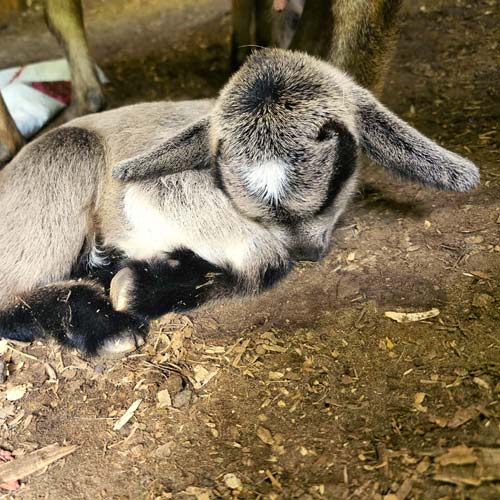
Nigerian Dwarf kid recently born
Nubian and Mini Nubian kids
Once the kidding is completed, the doe should stand up on her own. She will start to clean her babies and kids are usually standing pretty quick and wanting to nurse. Sometimes the doe eats the placenta but not always. Give her an opportunity to eat it. If it does not get eaten in a few hours, dispose of it.
The doe’s udder will initially be full of colostrum. If the kids are not able to nurse, you must collect and provide this colostrum to the kids immediately after birth to ensure they receive all of its benefits. The concentration of colostrum in the doe’s udder will go down after a week. We collect and freeze some colostrum from the first day. If you have a young kid later on that is not doing well, thaw and give it some of the colostrum you saved. It’s a game changer for sick goat kids.
We keep the doe with her kids in the farrowing pen for at least a week before letting them go back to the herd. The doe may be a little hormonal and extra protective of her kids. Its not uncommon for the new mother to be confrontational with other does. This will pass quickly. Weaning takes around 8 to 12 weeks. We try to introduce solid sweet feeds like goat granola to the kids to ease the transition to solid food.
Record everything about the breeding
We document the sire (father) and dam (mother), breeding dates, gestation periods, kidding outcomes, and health records. Record-keeping is essential for effective herd management, preventing in-breeding, including tracking genetic traits and making informed breeding decisions in the future. Some breeders will cull the kids that don’t meet our desired breeding criteria. We chose not to. Once weaned, we typically sell or give those goats away. Another option is to wether (neuter) the males. Wethers grow up to be very mellow goats that can be around your does at all times.
Nubian Goat Recognition – American Dairy Goat Association
TnF Farms is a member of the ADGA (American Dairy Goat Association). The American Dairy Goat Association plays a crucial role in the recognition, registration, and promotion of Nubian goats in the United States. Through the ADGA, Nubian goat breeders gain access to a wealth of resources, opportunities, and a community of like-minded individuals dedicated to the improvement and promotion of the Nubian breed. The American Dairy Goat Association (ADGA) officially recognizes the Nubians, providing standardized guidelines for breed characteristics. ADGA is a prominent organization in the United States that registers and promotes the breeding and improvement of dairy goats.
The ADGA officially recognizes the Nubian breed and establishes breed standards. These standards outline the characteristics that define a Nubian goat, including details about their conformation, coloration, and other physical traits. The ADGA provides educational resources for goat breeders, including those specifically focused on Nubian goats. These resources include articles, publications, and events aimed at helping breeders improve their knowledge of goat husbandry, health, and genetics.
Mini Nubian Goat Recognition – Miniature Dairy Goat Association
TnF Farms is a member of the MDGA (Minature Dairy Goat Association). The Miniature Dairy Goat Association (MDGA) plays a vital role in acknowledging, registering, and promoting Mini Nubian goats in the United States. Mini Nubian goat breeders, through the MDGA, access a wealth of resources and opportunities, joining a community of like-minded individuals dedicated to enhancing and publicizing the Mini Nubian breed. The MDGA, a leading organization in the United States, officially recognizes Mini Nubians, establishing standardized guidelines for breed characteristics.
Furthermore, the MDGA officially recognizes Mini Nubians and Nigerian Dwarf breeds, setting forth specific breed standards. These standards delineate the defining characteristics of Mini Nubian goats, including details about conformation, coloration, and other physical traits. The association offers educational resources for goat breeders, with a particular focus on Mini Nubian goats. These resources encompass articles, publications, and events aimed at enhancing breeders’ knowledge of goat husbandry, health, and genetics.
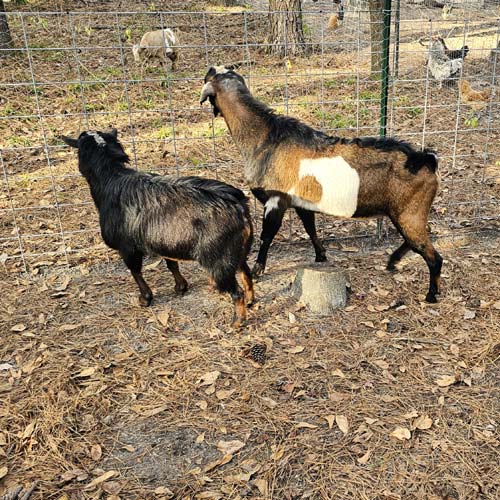
Size comparison of bucks. Nigerian Dwarf (left) Mini Nubian (right)
Registered Mini Nubian and Nigerian Dwarf Goats
Registered goats involve providing documentation of the goat’s lineage and meeting specific breed standards. Mini Nubian and Nigerian Dwarf goats that are registered receive official MDGA certificates, which can be valuable for breeding purposes and enhance the marketability of the goats. The MDGA keeps a comprehensive pedigree database, allowing breeders to trace the ancestry of registered Nubian goats. This information is valuable for making informed breeding decisions to improve or maintain certain desirable traits within the breed.
The MDGA organizes and sanctions dairy goat shows where Mini Nubian goats, along with other dairy breeds, can be exhibited and judged. These shows provide breeders with an opportunity to showcase the quality of their Mini Nubian goats and compete for awards based on conformation, milk production, and other factors. The MDGA offers programs that recognize and promote the performance and production capabilities of dairy goats. Mini Nubian goats can participate in programs such as the MDGA DNA testing and milk production quality testing
Being part of the MDGA community provides goat breeders with networking opportunities. Breeders can connect with others who share similar interests, exchange information, and collaborate to enhance the overall quality of the miniature dairy goat breeds. The MDGA is involved in health programs and initiatives to monitor and address genetic issues within the miniature dairy goat breeds. This can include efforts to prevent and manage genetic disorders through careful breeding practices and genetic testing.
Great goat farms where you can get goat milk or goats of your own
Do you want goat milk or goat milk products? Are you interested in new bloodlines that include registered dairy goats with milk stars, and champion show goats? Do you want good-natured goats you can milk for your hobby farm or homestead? Knowledgeable and friendly “goat people” are out there!
Big Muddy Farms
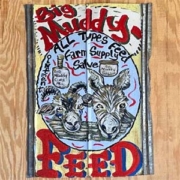
Available for purchase
- Registered Nigerian Dwarf goats*
*When livestock or weanlings are available.
Blarney Farms
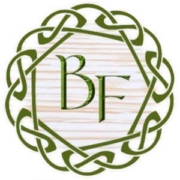
Available for purchase
- Raw goat milk
- Registered Mini Nubian goats*
- Registered Nigerian Dwarf goats*
*When livestock or weanlings are available.
Goat House Farm
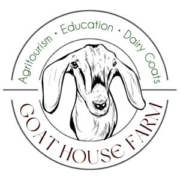
Location
West Tallahassee, Florida
- Contact: Melissa Dawn Hughes
- Website: www.goathousefarm.com
- Facebook: Goat House Farm
- Phone: 850-666-4714
Available for purchase
- Raw goat milk
- Goat milk products: Cheese, fudge
- Registered Nubian goats*
- Registered Mini Nubian goats*
- Registered Nigerian Dwarf goats*
*When livestock or weanlings are available.
Her Way Homestead

Available for purchase
- Registered Nigerian Dwarf goats*
*When livestock or weanlings are available.
TnF Farms
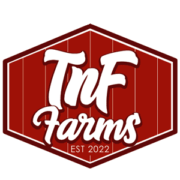
Location
Havana, Florida
- Contact: Faith Johnson
- Website: www.tnffarms.com
- Facebook: TnF Farms
- Phone: 904-570-7371
Available for purchase
- Raw goat milk
- Goat milk products: Cheese, yogurt, fudge, ice cream
- Registered Mini Nubian goats*
- Registered Nigerian Dwarf goats*
- Unregistered Nigerian Dwarf goats*
*When livestock or weanlings are available.
Does your farm belong on this list? Contact us, we’d love to add you!
